The 2026 FIFA World Cup, hosted across the United States, Canada, and Mexico, is set to become one of the most innovative sporting events in history. With 16 stadiums prepared to host matches, the tournament will merge advanced World Cup LED Display technology with live sports to create an immersive fan experience.
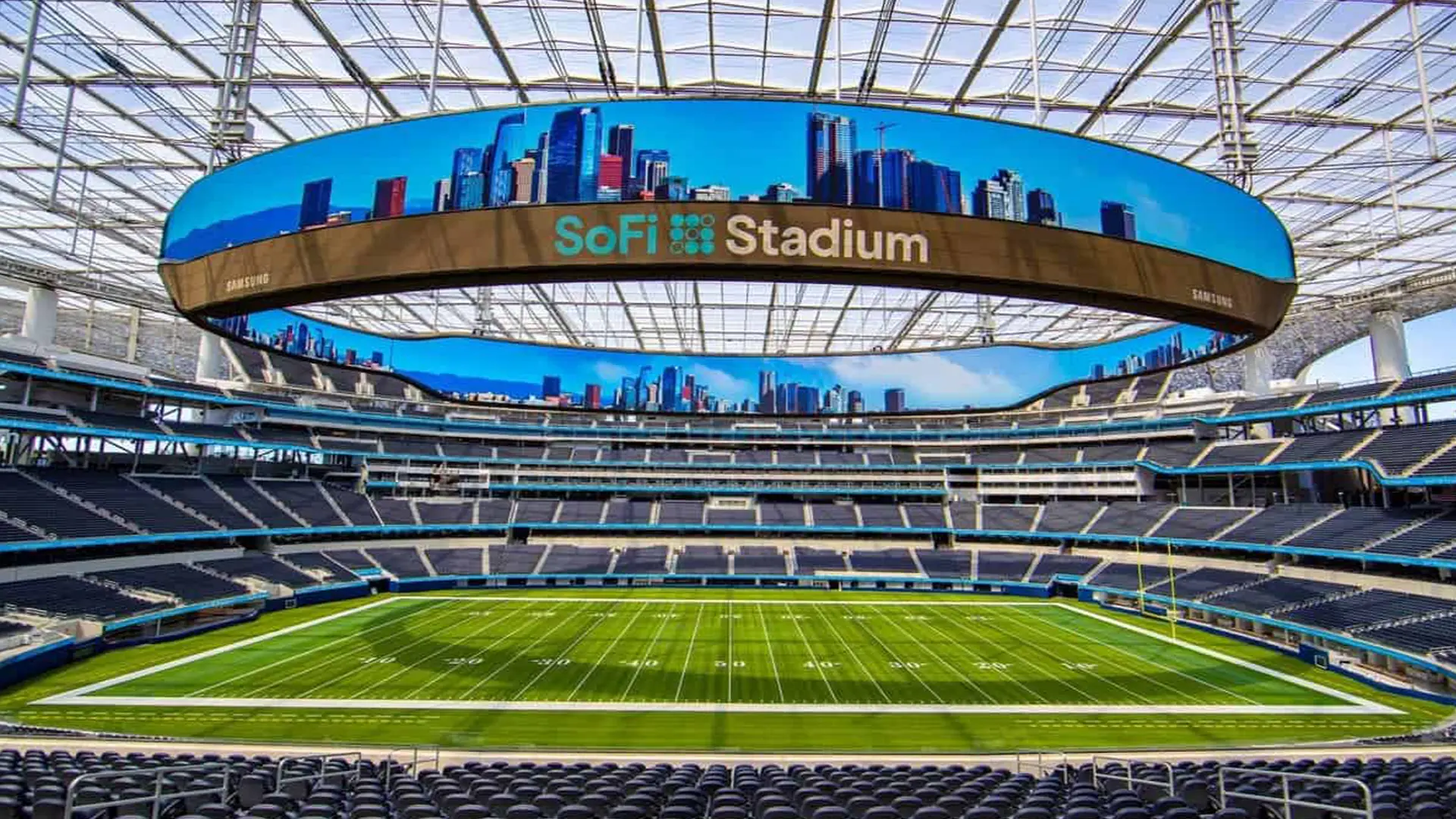
LED displays have evolved from basic replay screens to dynamic storytelling platforms. At the 2026 World Cup, stadium screens will offer:
Real-time statistics: Player speed, heat maps, and shot accuracy.
Multi-angle replays: In-depth match analysis.
Global fan reactions: Live social media feeds.
For example, AT&T Stadium in Dallas will feature a 16,000-square-foot LED canopy capable of projecting holographic player highlights. According to FIFA’s 2026 Venue Development Report, this design aims to create a futuristic atmosphere while ensuring visibility for all 80,000 spectators.
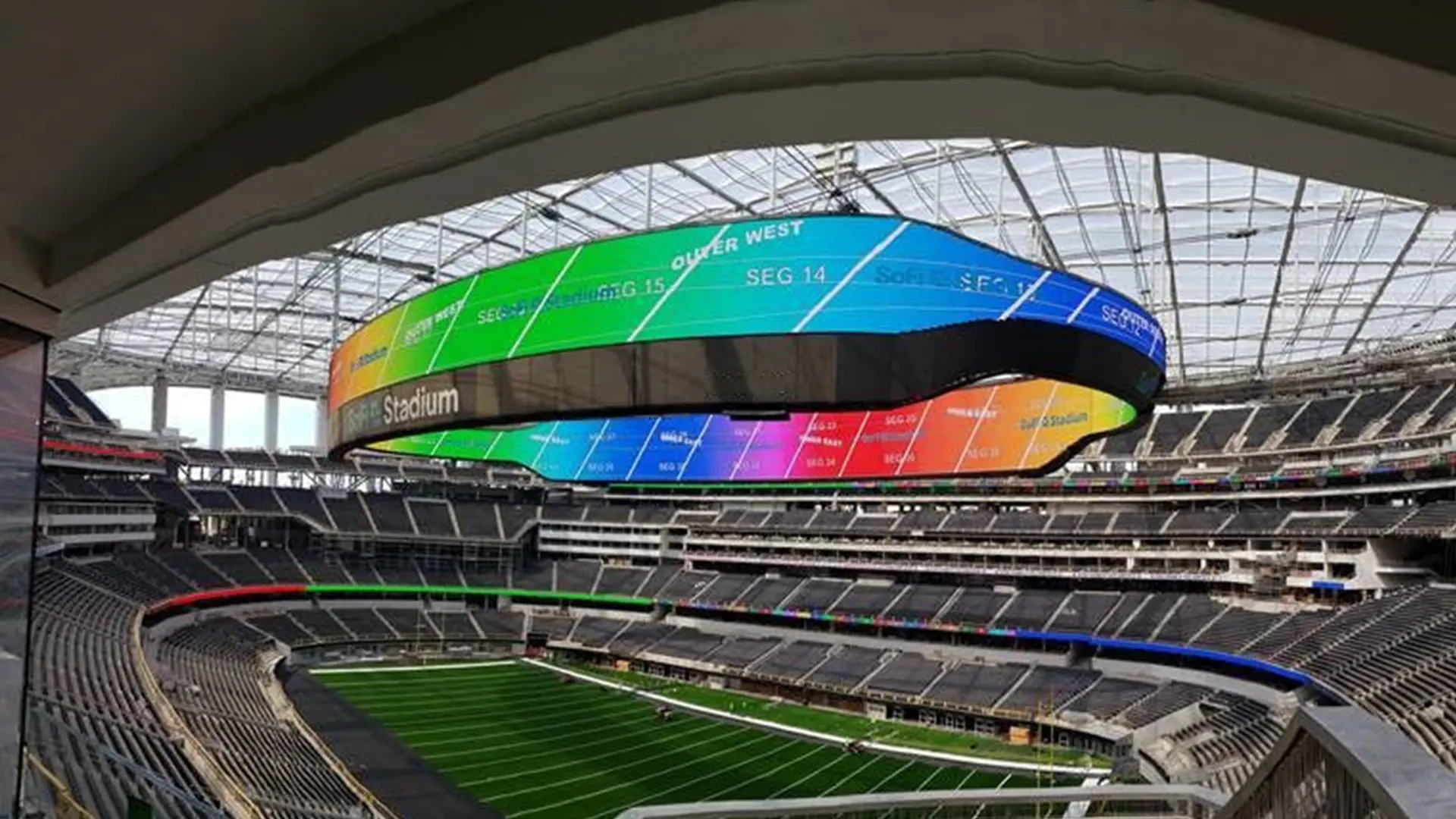
Stadiums will utilize multi-screen synchronization technology, ensuring that all LED displays—whether jumbotrons, corner screens, or digital signage—operate in perfect harmony. This eliminates delays and guarantees fans receive the same information simultaneously, regardless of seating location.
High-tech stadiums are crowded with devices that generate electromagnetic interference (EMI), such as cameras, drones, and mobile networks. The 2026 World Cup will employ anti-interference LED technology, ensuring crystal-clear visuals without disruptions, even in the busiest venues.
LED displays utilizing micro-LED technology (ultra-small LED chips for higher brightness and energy efficiency) will deliver brightness levels of up to 2,000 nits, ensuring clarity even in bright sunlight at outdoor venues. These energy-efficient panels will reduce power consumption by up to 40%, aligning with the World Cup’s sustainability goals.
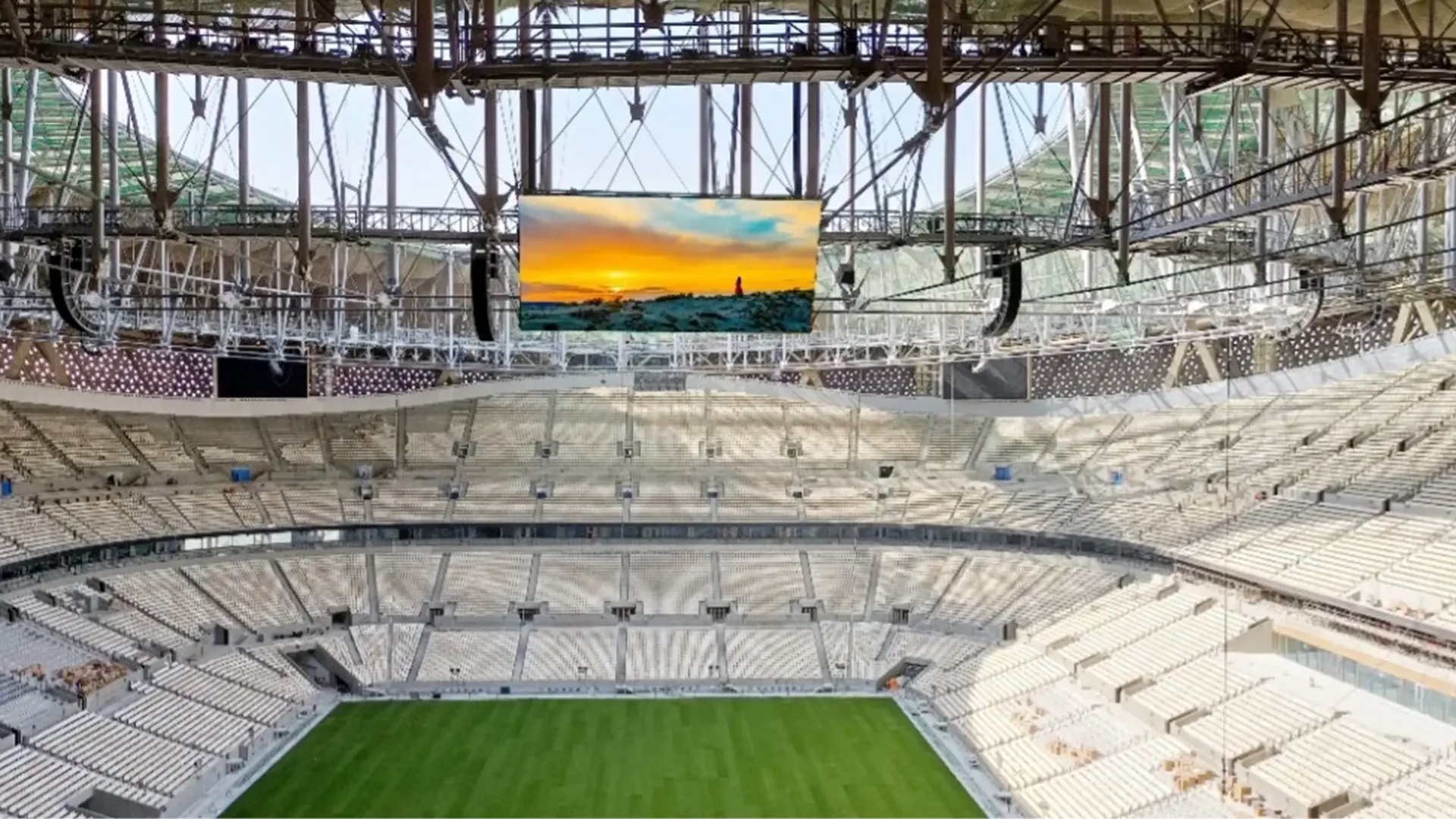
Modular LED systems allow for flexible configurations, enabling stadiums to adapt displays for different events:
4K LED wall for soccer matches.
Curved LED screen for concerts or esports tournaments.
Artificial intelligence will personalize content based on audience demographics. Stadium LED displays will feature:
Language-specific commentary.
Localized advertisements tailored to fan preferences.
Interactive games, ensuring a more engaging experience for diverse audiences.
The integration of 5G networks and edge computing will allow for real-time content updates with minimal latency. This technology will support features like:
Instant uploads of fan-generated content (e.g., selfies).
AR overlays, such as virtual player stats projected onto the field.
Thermal management systems to handle extreme desert temperatures.
IP65-rated panels for protection against sandstorms.
4K HDR streaming for global audiences.
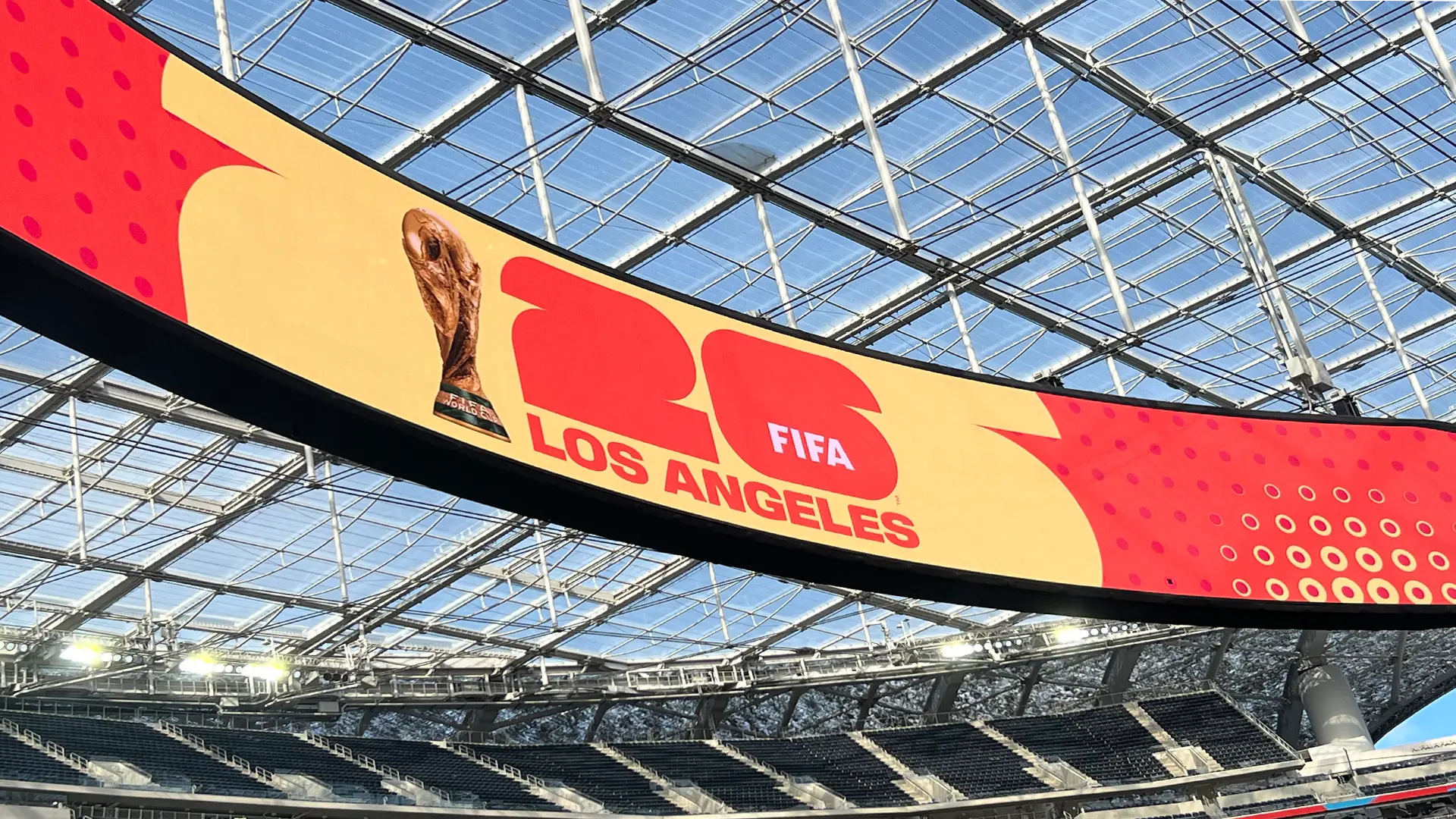
The 2026 tournament spans three countries with varying climates and infrastructure. LED solutions will be tailored to meet these diverse requirements:
Cold Climate Solutions: Canadian stadiums will feature heated LED panels to prevent frost buildup.
Urban Installations: Compact LED systems will be used in smaller venues, while tower-mounted screens will provide 360-degree visibility in megastadiums.
Organizers can choose between pre-assembled modules for quick deployment and custom-built systems for unique stadium designs. For temporary venues, LED truss systems will allow easy setup and takedown.
IoT-enabled LED displays will feature real-time diagnostics, alerting technicians to issues like overheating or pixel failures. This ensures uninterrupted performance during critical matches.
The 2026 World Cup has committed to carbon neutrality, with LED technology playing a significant role in sustainability efforts:
Recycled Materials: LED enclosures will incorporate post-consumer recycled plastics (reducing carbon emissions by 30% compared to traditional materials, per GreenTech Insights 2025).
Solar-Powered Systems: Some stadiums will integrate solar panels to power LED displays during peak hours.
Longevity and Reuse: After the tournament, LED screens will be repurposed for local events, reducing electronic waste.
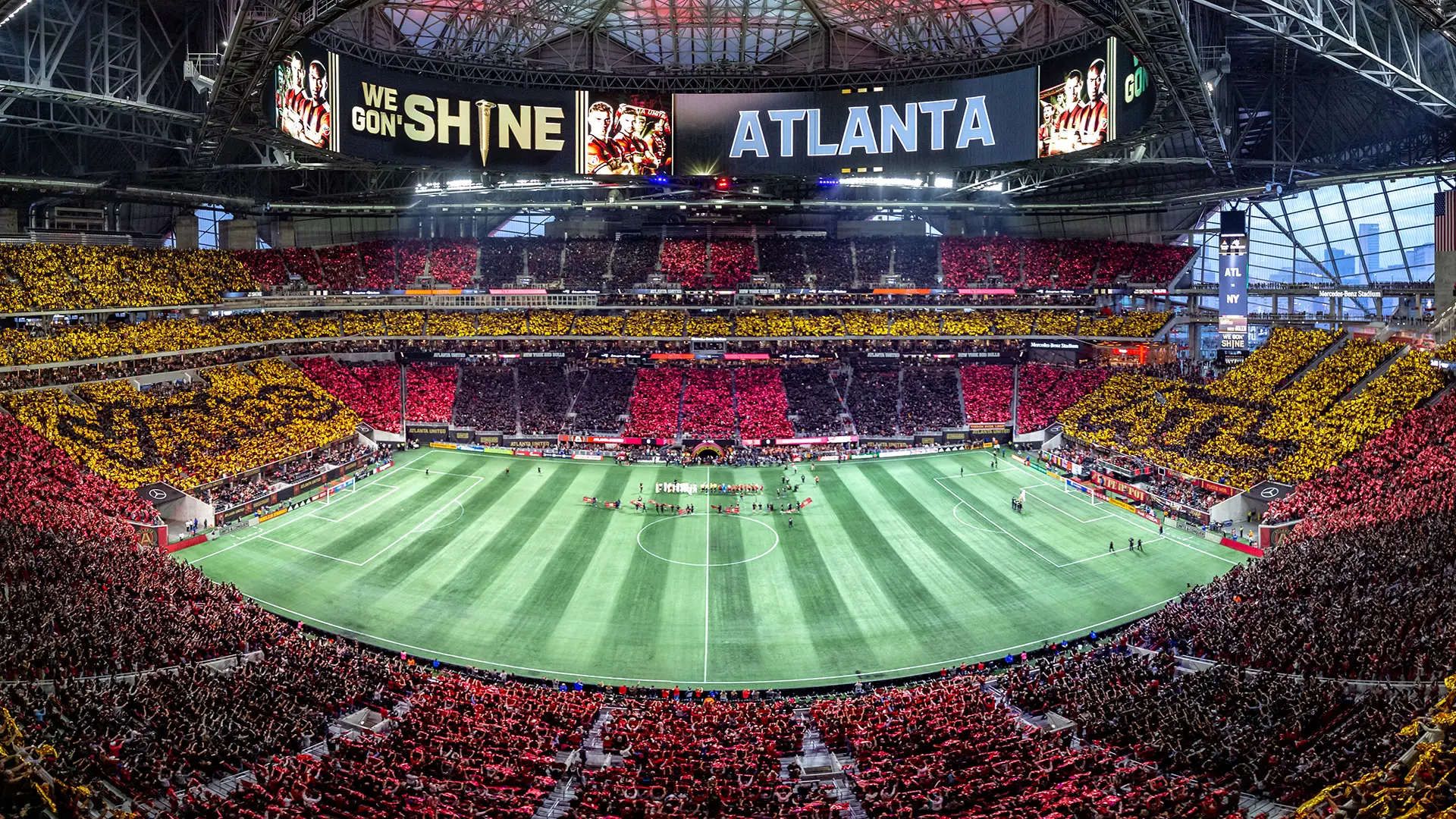
As technology continues to evolve, the 2026 World Cup will showcase several emerging trends in LED displays:
Holographic Projections: 3D displays of players and referees for immersive replays.
Biometric Feedback: LED screens that react to crowd emotions using facial recognition.
Blockchain Integration: Interactive LED kiosks for secure ticket verification via blockchain.
The 2026 World Cup LED Display technology will revolutionize the fan experience and set new benchmarks for global sports events. From cutting-edge micro-LED panels to AI-driven content personalization, LED screens will transform the way audiences interact with live sports.
For businesses in the LED industry, this tournament offers an unparalleled opportunity to showcase their innovations on the world stage. By investing in sustainable, scalable, and smart solutions, companies can position themselves as leaders in the rapidly growing sports technology market.
Take Action Today
Whether you’re a stadium designer, event organizer, or tech enthusiast, the 2026 World Cup is a reminder of how technology and sports are evolving together. Embrace the change, and let LED displays redefine the future of sports entertainment.
Need help implementing LED solutions for your venue?
Contact our team to discuss tailored LED display solutions for live sports events.
Hot Recommendations
If you are interested in our products, please contact us promptly
Reach out to our sales team to explore customized solutions that perfectly meet your business needs and address any questions you may have.
Email Address:info@reissopto.comFactory Address:Building 6, Huike Flat Panel Display Industrial Park, No. 1, Gongye 2nd Road, Shiyan Shilong Community, Bao'an District, Shenzhen city , China
whatsapp:+86177 4857 4559